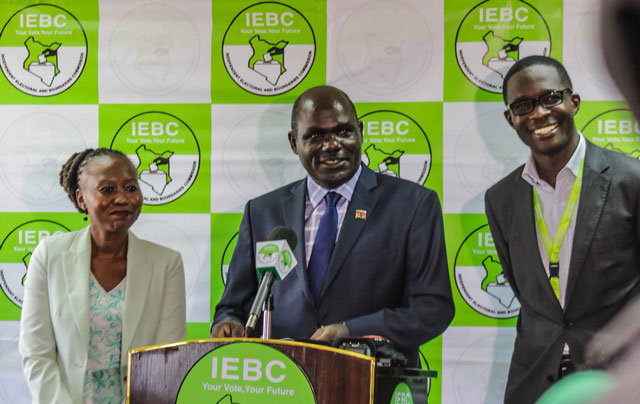
– ‘We need peace’ –
IEBC chief Wafula Chebukati responded to the NASA claims, detailing that their “evidence” was riddled with arithmetical errors and came from a Microsoft database, while the electoral commission’s system was running on Oracle.
In the Kondele neighbourhood of the western city of Kisumu — where protests erupted on Wednesday — hundreds of Odinga supporters took to the streets, banging drums and blowing vuvuzelas after his party declared him the winner.
“We are happy,” said 35-year-old Anthony Karaba, as a police helicopter hovered overhead.
“We need peace and we need the correct results.”
The IEBC insists its electronic voting system — seen as key to avoiding fraud — was not compromised.
Britain and the US joined foreign observer missions in urging party leaders to be patient and refrain from inflaming tensions ahead of the release of final results.
Former US secretary of state John Kerry, leading an observer team from the Carter Center, expressed confidence in the IEBC.
“We believe the IEBC put in place a detailed, transparent process of voting, counting, reporting and securing the vote, all of which lends significant credibility and accountability,” Kerry told journalists.
Before the election the race between Odinga and Kenyatta was seen as too close to call.
It was billed as the final showdown between the two men whose fathers Jomo Kenyatta and Jaramogi Odinga were allies in the struggle for independence, but later became bitter rivals, setting the stage for decades of political rancour.
Kenyatta, 55, is seeking re-election after a first term in which he and his Jubilee Party were credited with a massive infrastructure drive and overseeing steady economic growth.
Odinga describes himself as a social democrat who wants to fight inequality.
 The Independent Uganda: You get the Truth we Pay the Price
The Independent Uganda: You get the Truth we Pay the Price





